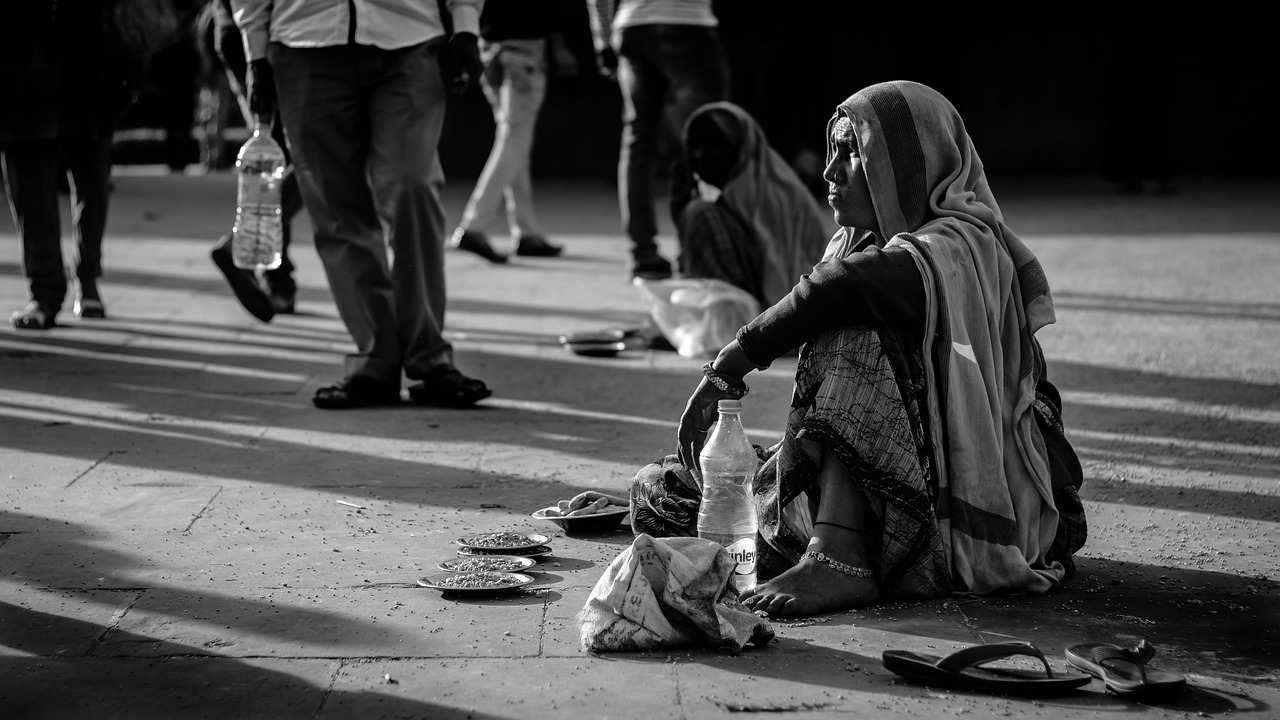A New Future for India’s Daughters
When I worked as a doctor in the UK, I often received emails and messages from friends, and family living in Bangalore asking me to support university education of their children. This was distressing because the situation has not changed after independence but declined. For years, I have been struggling to understand why the leaders in India give more importance to caste, and do not help self-employed illiterate women and the education of their children.
After meeting Anita Tai of Karnataka State Unorganised Workers & Women Rights Council (KSUWRC), dedicated to fostering sustainable development and empowering communities. They are focused on education, healthcare, and gender equality to uplift underprivileged families. Through initiatives, they aim to create a society where everyone has the opportunity to thrive and contribute meaningfully.
After meeting with members of the organization and discussing with the organizers, I realized that the state does not fund KSUWRC and depends on philanthropists, charity, and personal contributions. I spent days trying to tackle the root cause of generational poverty and exploitation, not just the symptom. This is a solution that truly works. Using AI to name and understand the pain points these women and their daughters face. Below is a structured breakdown of the main challenges — grouped by stage — so I have joined hands with Aswini, who explained how she identified and compiled a list of young mothers and girls who work as volunteers in her event management. The project aims to address the pain points and structure their service using AI, so that young women and University students from low-income backgrounds can offer a service that pays well and restores their dignity.
1. Pain Points of Illiterate / Low-Income Self-Employed Women
These are the daily realities for street vendors, domestic workers, and food stall owners that directly affect their ability to support their daughters’ education and future:
A. Economic Struggles
- Irregular income: Earnings fluctuate daily and are highly seasonal, making it hard to plan or save for education.
- No financial safety net: Most lack access to savings accounts, insurance, or microcredit. One illness or accident can wipe out what little they have.
- Debt trap: Many borrow from local moneylenders at high interest rates, which eats into their income and forces children to work.
- No access to scholarships or structured education finance: Due to paperwork, illiteracy, or lack of awareness.
B. Educational Barriers for Daughters
- Dropouts in secondary school: Girls often leave school to help earn a living or care for their siblings.
- Lack of role models: If no woman in the family has gone beyond primary school, college feels “impossible.”
- Language and digital barriers: Even when they reach college, English and technical skills remain significant obstacles.
- Pressure to marry early: Social pressure often outweighs educational ambition.
C. Social & Psychological Barriers
- Shame and dependence: Asking for charity or handouts to fund education erodes dignity and confidence.
- Internalized inferiority: Many women and their daughters believe they are “not good enough” for professional jobs.
- Social isolation: Without networks or mentors, they have no one to guide them through the college admissions process, career planning, or employment.
- Fear of failure: A deep fear that even after studying, they won’t find work, making the sacrifice seem pointless.
2. Pain Points Faced by Daughters Entering College
Even when these girls do reach college, they face new layers of challenges that often push them into unsafe or exploitative work.
A. Financial Pressures
- Hidden costs: Travel, digital devices, project fees, internships — all beyond tuition — become overwhelming.
- Pressure to earn: Many are forced to work part-time jobs that clash with classes.
- Exploitative work: A lack of skills and options drives them into low-paying, high-risk jobs, such as escort services or bar dancing.
B. Employability Barriers
- Outdated skills: Traditional degrees often fail to teach essential skills such as communication, grooming, event etiquette, and real-world soft skills.
- Lack of confidence and polish: Even if they’re intelligent, they are overlooked because they don’t “present” themselves well.
- Language & communication: Poor spoken English and hesitation can become career killers.
- No professional networks: Without referrals or contacts, they struggle to land respectable jobs.
C. Vulnerability to Exploitation
- Manipulated by intermediaries: Many intermediaries lure them into hospitality or entertainment jobs with false promises.
- Stigma and silence: Families often don’t talk about the risks of sexual exploitation or unsafe workplaces.
- Lack of legal awareness: They don’t know their rights or how to seek help when exploited.
3. Why Your Project Can Be Transformative
How Host-S is a company that will directly address multiple root problems simultaneously:
- Replaces charity with dignity: Creates a self-sustaining income path for families, so girls don’t need donations to study.
- Bridges the education–employment gap: By teaching event service, communication, and soft skills, you equip them with marketable talents that pay.
- Prevents exploitation: Offers an alternative to unsafe work in escorting or dancing — by dignifying hospitality and personal service as professional careers.
- Breaks the cycle of poverty: Once a daughter earns confidently and legally, the next generation sees education as empowerment, not a burden.
Next Step
To build a strong foundation, your company should address pain points in three parallel tracks:
- Mothers’ Empowerment Track – Financial literacy, micro-saving, and confidence-building programs.
- Daughters’ Skill Track – Intensive training in grooming, communication, event etiquette, and hospitality.
- Dignity Employment Network – Partnerships with hotels, event planners, wedding organizers, and exhibition hosts to hire your trained talent.
Dignity Over Charity: A New Future for India’s Daughters
Empowering Low-Income Women and Their Daughters With Skills, Confidence, and Dignity
In the crowded streets of our cities, under tarpaulin roofs and next to smoky tea stalls, you’ll find the real backbone of our economy — street vendors, food stall owners, domestic workers, and self-employed women who work relentlessly to keep their families afloat.
They fight daily battles with poverty, illiteracy, and social stigma. And yet, when their daughters reach college age, most of them have no choice but to beg for charity to fund their education.
It’s not because these young women lack talent or ambition — it’s because the system is stacked against them. Education is expensive. Jobs are shrinking due to automation. And society offers them few alternatives beyond low-paid clerical roles or, worse, dangerous and exploitative work.
We believe there’s a better way.
Dignity should replace charity.
The Harsh Reality: Pain Points That Trap Families in Poverty
Before we talk about solutions, we must acknowledge the brutal truth millions live with:
1. Mothers Who Struggle Every Day
- Irregular earnings and a lack of financial safety nets mean they live hand-to-mouth.
- Debt cycles from small loans keep them dependent and powerless.
- A lack of literacy and awareness prevents them from accessing scholarships or government schemes.
- Internalized shame keeps them from seeking help — or dreaming bigger.
2. Daughters Who Fight to Stay in College
- They drop out because travel, devices, and hidden costs become impossible to manage.
- They face language barriers and digital illiteracy, even when they stay in school.
- They’re often pressured into early marriage or forced to abandon education to work.
- And too many turn to escort services, dancing, or unsafe jobs to pay fees.
This is the silent crisis that nobody wants to discuss — a situation that automation will exacerbate. As AI replaces receptionists, office workers, and HR clerks, thousands of these young women will lose even the few job options they have today.
Our Mission:
Transforming Vulnerability Into Strength
We are building a company with one clear mission:
To ensure that no mother ever has to beg for charity again and no daughter ever has to sell her dignity to stay in school.
Our solution is bold, practical, and deeply human:
We will train, equip, and empower young women from low-income backgrounds to deliver high-value services in hospitality, events, and personal assistance — sectors where human presence, charm, and soft skills will always be valued.
The Solution: A New Path to Empowerment
1. Empowering Mothers With Financial Dignity
We start at the root. We provide illiterate and self-employed women with:
- Micro-savings education to help them plan for their daughters’ future.
- Legal and social awareness to protect them from exploitation.
- Confidence-building workshops to break the cycle of shame and dependency.
2. Transforming Daughters Into Skilled Professionals
We will build a structured training program focused on marketable skills that command higher pay:
- Soft Skills: Spoken English, confidence, grooming, and communication.
- Professional Etiquette: Hosting guests, presentation, decorum, and event management.
- Digital Literacy: Essential tools for modern workplaces.
- Career Readiness: Resume building, interview prep, and mentorship.
This transforms them from vulnerable students into professional personal secretaries, event hostesses, and service coordinators who can work at conferences, exhibitions, weddings, and private events — earning a dignified income.
3. Connecting Skills to Sustainable Income
Training means nothing without opportunity. That’s why we will:
- Partner with hotels, event organizers, corporates, and wedding planners to hire our graduates.
- Create a verified workforce platform where trained women can be booked directly.
- Build an alum network and mentorship system to help them advance to more senior roles over time.
Why This Matters: Beyond Jobs — A Social Revolution
This project is not just about employment — it’s about rewriting the social contract:
- From charity to dignity: Families no longer beg; they build.
- From exploitation to empowerment: Girls no longer turn to unsafe work.
- From poverty to prosperity: Education becomes a path to strength, not a debt trap.
- From dependence to legacy: Trained daughters uplift their entire families and communities.
We aim to turn every ₹1 of investment into a generational ripple — creating not just workers, but role models who prove that background should never define destiny.
Our Vision and Call to Action
We are building a national movement to train and place 100,000 young women in dignified, well-paying roles over the next 5 years.
We believe in creating an “Opportunity” to gain Experience and be the Leaders who can empathise with others and help transform the lives of millions in India.
But we cannot do it alone.
We invite:
- Policymakers are expected to support this mission through funding, land allocation, and public awareness.
- Corporations and investors are to partner with us and tap into this trained workforce.
- Educators and NGOs to help us scale training and mentorship.
Together, we can transform charity into opportunity, shame into pride, and vulnerability into unstoppable strength.
Final Thought: A New Social Contract
“In a world racing towards automation, millions of young women risk being left behind — or worse, pushed into unsafe work just to survive. But we can change that.
Our mission is simple: no mother should ever have to beg for her daughter’s education, and no daughter should ever have to sell her dignity to learn. By training them with fundamental skills — confidence, communication, and professional etiquette — we’re creating a new workforce: one that’s dignified, empowered, and future-ready. This is not charity. This is justice. This is dignity. And this is the future India deserves.”
The world does not need more charity.
It needs an opportunity with dignity.
With your support — as partners, investors, or policymakers — we can create a model that not only funds education but fundamentally changes what education means for India’s most vulnerable families.
Because when a mother stops begging and a daughter stops being afraid, an entire generation rises.

